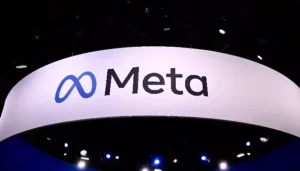Meta has joined Google and Microsoft in issuing a clear directive to employees: embrace artificial intelligence tools or risk falling behind.
The company is intensifying internal efforts to integrate AI into daily workflows, making its usage a key metric in performance evaluations and team productivity.
This move reflects a broader industry trend where AI proficiency is no longer optional but essential for career progression.
Meta’s internal systems now track how extensively employees use AI tools, and some departments have been assigned specific adoption targets.
The company’s hardware division, Reality Labs, has set a goal of achieving over 75 percent AI adoption among employees, up from 70 percent currently.
This marks a sharp rise from just 30 percent in June 2025, underscoring the urgency of the shift.
Gamified Engagement and Performance Monitoring
To encourage adoption, Meta has launched a voluntary program called Level Up. The initiative gamifies AI usage through its internal chatbot, Metamate.
Employees earn badges as they reach usage milestones, turning AI engagement into a measurable and incentivised activity.
While some teams are encouraged to experiment freely, others face structured targets that influence their standing within the company.
Meta employees are using AI assistants for a range of tasks including code generation, brainstorming sessions, policy inquiries, and document drafting.
The company’s dashboards monitor usage across divisions, and adoption data is increasingly tied to performance reviews.
Industry-Wide Shift: AI as a Core Skill
Meta’s approach mirrors similar mandates from Google and Microsoft.
Microsoft’s Julia Liuson instructed managers to treat AI usage as essential as collaboration skills during performance evaluations.
Google CEO Sundar Pichai told employees they must become more AI-savvy to remain competitive, with the company now generating over 30 percent of its code using AI tools.
This collective push by Big Tech signals a redefinition of workplace expectations.
AI is no longer viewed as a support tool but as a central component of productivity and innovation.
Meta Leadership Vision and Future Outlook
Meta CEO Mark Zuckerberg has publicly reinforced the company’s AI-first strategy.
On Meta’s April earnings call, he projected that by late 2025, AI would perform at the level of a mid-level engineer.
By mid-2026, AI coding agents are expected to handle substantial portions of research and development work.
The company has invested heavily in AI infrastructure, including superclusters and advanced training models, to support this transition.
Worker-tracking software providers report rising demand for AI usage monitoring tools, as companies seek to quantify productivity gains and cost savings.
Meta Employee Reactions and Organisational Impact
Some employees have welcomed the gamified approach, while others have raised concerns about surveillance and pressure to conform.
The shift has prompted internal discussions about balancing innovation with autonomy, especially in creative and policy-driven roles.
Meta has stated that its goal is to assist employees with daily tasks, not replace them.
However, the message across Silicon Valley is clear: those who do not adapt to AI-enhanced workflows may face limited growth opportunities.
Note: We are also on WhatsApp, LinkedIn, and YouTube to get the latest news updates. Subscribe to our Channels. WhatsApp– Click Here, YouTube – Click Here, and LinkedIn– Click Here.



